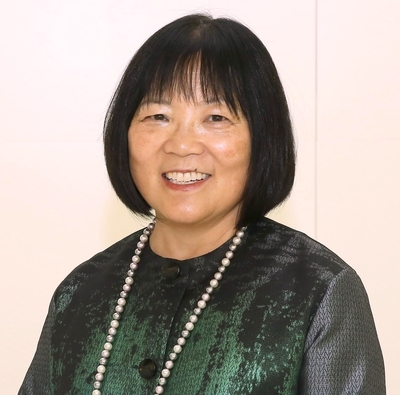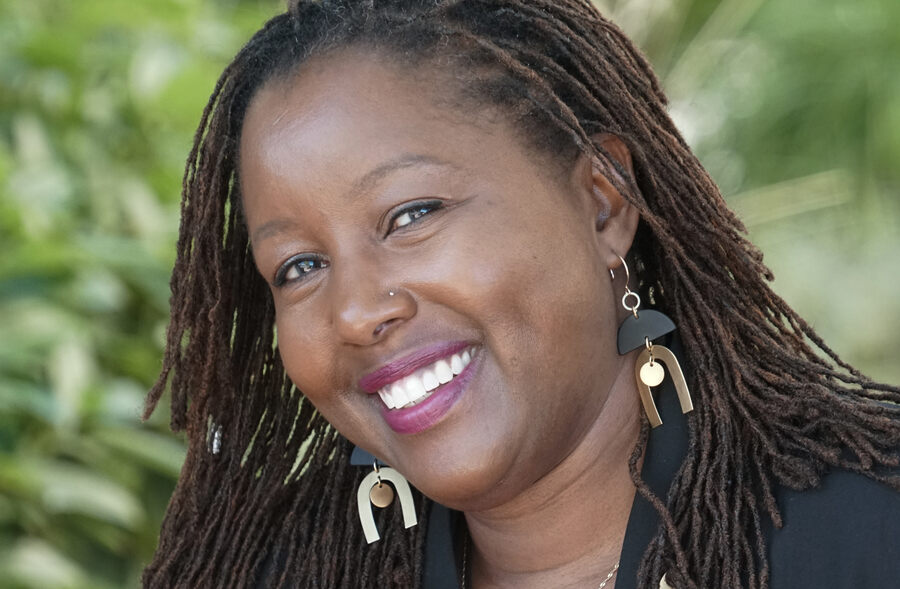It was in February 2020 that Alys E. Holden, director of production at Oregon Shakespeare Festival, came to the company’s newly appointed artistic director, Nataki Garrett, with “three or four scenarios for me to analyze about what happens if we shut down,” as Garrett recalled in a recent interview. Just one month later, the scenario that won out was the same as at every theatre across the U.S.: All three of the festival’s venues in rural Ashland, Ore., totalling around 2,000 seats among them, were shuttered entirely to stem the spread of COVID-19, just six days into a 10-show season of which just three shows met audiences before cancellation. “Clopening,” a bitter portmanteau borrowed from exploited shift workers, was an apt shorthand for that murderous March at theatres nationwide, and Oregon Shakes was no exception.
The festival would not produce a live, in-person show again until 2021’s Fannie: The Life and Times of Fannie Lou Hamer, which ran from July through October on the festival’s outdoor Allen Elizabethan stage, and would not produce a full season until an eight-show slate ran from April through December 2022, to understandably spotty attendance for a destination theatre town beset by seasonal wildfires and barely emerging from the age of Omicron. It would be the only full season that Garrett, first hired to succeed artistic director Bill Rauch in March 2019, would both fully program and oversee, as she is resigning from the leadership of OSF, effective May 31. Her production of Romeo and Juliet, currently running at the Angus Bowmer Theatre, will be her swan song as a director there.
Her departure comes in the midst of a “Save Our Season” campaign, an effort to raise $2.5 million by June 1 to launch the current five-show season and $10 million to complete it, as well as plan for the future; OSF’s ambitious repertory production model typically requires long lead times, and under normal circumstances next year’s season would have been announced by now. And this move comes quickly on the heels of a leadership reshuffling in which Garrett was briefly named executive director when David Schmitz left that position in January, only to be relieved of that position a few weeks ago as the board assumed administrative duties.
What led to Garrett’s resignation after just four years in the post, in which she spent as much or more time handling crises and fielding criticism as programming and making theatre? And what led OSF to the point where they had to put out their hand for help?
“You kind of have to get out before you burn out,” Garrett said last week. “I don’t want to be a liability to this organization. I could feel the stress of this year.” She pointed to the April departure of associate artistic director Mei Ann Teo, whom Garrett had brought on as part of a team of associate leaders in 2021, as “a good sign for me that what OSF is going to need in this next endeavor to move through a crisis may not include my skill set.”
The “stress” of the past year included an ugly chapter in which Garrett, a Black woman with a young child in the predominantly white town of Ashland, faced death threats and hired security. And this incident of open racism was sometimes hard to disentangle from a drumbeat of criticism she faced over her leadership and programming as the festival’s first artistic director of color. In the fall of 2021, she said she “started to receive letters from a group of people that called themselves ‘the old white guard,’ and they were upset because in 2021 I didn’t program Shakespeare.” That, of course, was the year in which only one show, Fannie, made it to a festival stage at all. And Garrett’s track record for programming Shakespeare vs. new work is comparable to her predecessor, Bill Rauch: Her 2022 season featured two Shakespeare plays out of eight, while the Rauch-programmed 2019 season had three out of 11. Two of the five productions in Garrett’s 2023 season are by Shakespeare. Given that the programming under her watch was similar to her predecessor’s, then, it is hard to escape the conclusion that it was something else—i.e., her race and gender—that raised hackles.

OSF board chair Diane Yu told me this week that Garrett remains “one of the most ambitious, bold, passionate, and powerful artists I’ve ever come across,” with “great taste and a great intellect for artistic creation,” praising in particular not only her OSF productions of How to Catch Creation, Confederates, and the current Romeo and Juliet but her direction of Central Park Five at Portland Opera last year. Yu also credited Garrett with helping to spearhead the Professional Non-Profit Theatre Coalition, a prescient partnership with theatres including Woolly Mammoth and the Public Theater to garner federal relief to offset anticipated softness in post-COVID audience turnout (an idea, Garrett told me, inspired in part by this Jesse Green piece from the summer of 2020).
Yu also said that the “Save Our Season” campaign was going well, against the backdrop of continuing fundraising efforts, and that the board was working closely with staff while interim artistic and executive leadership is being sought. Board member Octavio Solis, a playwright who has been frequently produced at OSF, has been tapped to oversee the artistic team, as part of a temporary management structure the board anticipates will last three to four months. Board and staff have their work cut out for them: The scaling back of the number of shows per season is just one indication of severe contraction at the festival, which earlier this year laid off 19 workers and stopped hiring for 20 open positions, and whose operating budget in the past few years plunged nearly by half. While Garrett pointed optimistically to recent upturns in ticket sales, both Garrett and Yu noted that OSF has relied for years on a handful of extremely high-money donors, and that both the pandemic shutdown and the annual fire season in Rogue Valley put a severe strain on those relationships. “My first personal call to those people was, ‘Can you help us, we’re in a crisis,’” Garrett lamented. Meanwhile, previous emergency funding measures, like dipping into the festival’s endowment and tapping its credit line, had been exhausted—hence the public ask for funding from all quarters and in all amounts.
“We still have a large number of donors who donate under $25,000 a year—our largest pool is still that pool,” said Garrett. “But the way that OSF works is, that is usually balanced out by a group of donors who donate in the higher numbers. Without that group of people activated and galvanized to make sure that we survive, there’s just no way forward.” Executive director David Schmitz “spent a lot of time with those people to pull them on board” in 2022, she said, and had some success, raising $7.5 million before he left.

Yu couldn’t comment on Garrett’s departure, and other sources I’ve spoken to wouldn’t go on the record about the extent to which they see Garrett’s tumultuous tenure at the festival through lens of structural challenges that are both industry-wide (the pandemic, audience attrition, subscription decline) and Ashland-specific (a mostly white-populated destination theatre town plagued by seasonal wildfire smoke), nor where they fall on the question of whether Garrett was never given the chance to realize her bold vision or if that vision simply wasn’t a good fit for an 88-year-old institution with Shakespeare in its name.
A meeting Garrett recalled with one of those high-number donors crystallized some of what she faced during her time there.
“In my first year, a donor told me that I was the reason she rescinded a large gift,” said Garrett. “She came to me and told me to my face, and she said, ‘I want to make sure you know it’s not because you’re Black. But there are things about the organization that you just don’t understand, and you have big shoes to fill.’ I was like, ‘Thank you for letting me know where you stand.’ I went to my development team and said, ‘We’re gonna have to pivot.’ And then the crisis happened. You can’t really build the plane and fly it at the same time.”
The heartbreak of leaving OSF, she said, is that she can see the road ahead.
“I believe that there’s a future for this organization,” she said. “If you use the foundation that Angus Bowmer created—he said from the very beginning that this was an experiment.” But the pace of change she had in mind, she acknowledged, clearly didn’t match that of the theatre’s audience or stakeholders. “When you recognize the potential for something to shift, and you can see the path, then the question becomes, how do you implement a strategy where that is possible in an environment that sees any shift as radical change?” she asked rhetorically. “At some point, you’re working at cross purposes with an organization that wants to remain in some ways recognizable to itself and its history. The way forward that I see does not include an adherence to that; it includes that as a foundation.”
She caught a glimpse of the theatre she hoped to build at a recent preview performance of Romeo and Juliet, in which two student groups in the audience came in with a youthful energy she recognized from her time doing theatre at Virginia Union, an HBCU where “we knew we were doing the work if you could hear the audience; if the audience was silent, your play was dead.” At some point, she said, the students “went from texting each other about what they were seeing to holding their phones to their hearts. It gave me chills.” Garrett said she heard an older patron in front of her complain about the kids at intermission, but her impulse wasn’t to scold or banish that theatregoer either. Instead, she said, “We need to create a room in which both are possible.”
Rob Weinert-Kendt (he/him) is the editor-in-chief of American Theatre.


